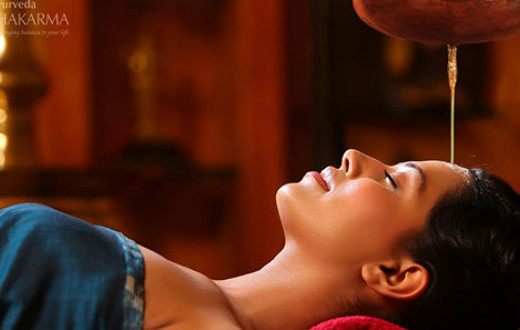The medical fraternity is going through its worst test ever amidst the pandemic. How can we help doctors, nurses, students, and all the medical staff involved in treating Covid patients at this terrible time? How can they look after themselves?

“Last year we wore gynecological scrubs as Personal Protective Equipment (PPE) was not available to us. This year, we are eating with our PPEs on, pulling down our masks in the most unsterile environment possible. There is no question of a bathroom break, so we cut down on water. I am not even sure of the quality of the mask and kit given to me.”
“She begged us to save him on the video call. I don’t know what to say to her. There is no bed available. We have finally sourced oxygen cylinders at exorbitant rates. Their savings are wiped out but still it is not enough to save the lives of their loved ones.”
“I am a pharmacology graduate. I have been posted at the hospital as part of mandatory service. I have no knowledge of how to deal with severely critical patients. I have been told that no security or doctor will come to my assistance if a patient’s family attacks me, and so, to safeguard myself, I should tell patients that there is a good chance they will die despite getting a bed and ventilator.”
“I have switched my cell phone off. I don’t want to talk to anyone. I cannot do anything. I feel so helpless. There are so many of them. I can’t see it anymore.”
These are the voices of medical professionals today - the frontline workers at the heart of the pandemic. Today, the whole nation’s hope and trust is resting on their overburdened shoulders. Naturally, the healthcare worker’s mental and physical health is a primary concern for all. Here are a few tips for doctors and other healthcare professionals during the pandemic.
1. Share stories of recovery - spread the joy
Don’t miss out on any opportunity to rejoice and celebrate. The survival rate is much higher than the mortality rate. Do share those figures with the world. It will buoy the spirits of your fellow healthcare workers as well as recovering patients (and their family) and give everyone renewed energy and vigor to fight and beat the pandemic.
2. Stand by your team

We are in a situation where even doctors don’t know how to treat patients who are critically ill. There are also challenges with the new variants of the virus, insufficient number of doctors on duty along with the inadequate training of new doctors on board, the lack of oxygen concentrators and cylinders, ventilators, PPEs, masks, Covid care kits, and beds. Medical professionals have been given knives for a gunfight. They should at least have the support of their team members in tough times.
3. Separate work & home
It’s tough to do it but draw a line between work and home and not let one spill into the other. Moreover, many have chosen to live at their workplace to avoid exposing their family. In this scenario, when you cannot unwind at home, separate work from your resting place. For instance, it would help to
- create different spaces for work and rest
- take a quick break between consultations or rounds
- end the day with a walk, browse an interesting magazine, or solve a puzzle, watch a standup comedy - anything to take your mind off the anxieties surrounding the pandemic
4. Include breathing exercises and meditation in your daily practice

There is great power in having a positive mindset. The easiest way to achieve this state of mind is through a few simple breathing exercises, pranayamas, and meditation a couple of times a day. You could choose to play a guided meditation of your choice - try Transforming Emotions and practice some of these breathing techniques.
Research studies showing breathing techniques help healthcare professionals
1. Research from Harvard Medical School and Sri Sri Institute for Advanced Research (SSIAR) has shown that The Art of Living’s signature breathing technique - Sudarshan Kriya - has helped healthcare professionals reduce their anxiety, stress, and depression levels and improved sleep quality, resilience, and satisfaction with life. It will mean 30 minutes of time to yourself that will make you a more productive and efficient professional. So, give yourself this time.
2. An under publication study with Medanta on healthcare professionals during COVID-19 showed that despite a highly stressful work environment,
- SKY was able to bring an improvement in professional fulfillment and reduction in work exhaustion.
- Immediately after the SKY workshop, 69 percent of the population experienced a significant reduction in work exhaustion, and 58 percent after 30 days.
- Similarly, 66 percent of the population experienced a positive shift in professional fulfillment after the workshop, and 62 percent after 30 days of practice.
- 58 percent of the population experienced a significant reduction in their interpersonal disengagement immediately after the SKY workshop and 69 percent at 30 days post practice.
The results suggest that SKY practice has a substantial positive impact on the healthcare professional’s mental health and work engagement.
Testimonials of doctors who practice Sudarshan Kriya (SKY)
“It gives a calming effect and I am sleeping better. Guruji's technique (of Sudarshan Kriya) is giving results from Day 1. I recommend Sudarshan Kriya to everyone I meet. Keep motivating us so that we can do better work for our patients and society.”
- Dr. Leena Kanungo, Specialist in Obstetrics and Gynecology
“I'm regularly following the Kriya practice at home. I feel very energetic all through the day and sleep well. Thank you so much for enlightening us with such a simple, powerful health care practice and incorporating discipline in us.”
- Dr. Pranavi, ESIC Hospital and College, Hyderabad
“I would like to express my deeper sense of gratitude to The Art of Living family for the Meditation and Breath Workshop. I felt very relaxed after doing Sudarshan Kriya.”
- Dr. Shaktidasan, Asst. Professor, Dept Of Methodology
5. Ensure physical exercise is part of your daily regimen
It could be a brisk walk, a jog on the treadmill, a little workout in the gym, yoga and desktop exercises - just to get the circulation going - something to break the stressful monotony and to clear the mind. Stretches like Cobra Pose (Bhujangasana), and Wind-relieving Pose (Pawanmuktasana) would be very useful.
6. Ensure you have a friendly ear to confide in when necessary
For doctors, the main contact is with people who are suffering. That’s a huge load to carry on their own. It’s important to have someone who is there, to listen to their fears, anxieties, uncertainties, difficult feelings and thoughts, perhaps even advise, but more than anything else, someone who is just there - who is not a patient. The importance of self-care for frontline workers must not be underestimated. You must be able to speak to someone you trust. This will help you think more clearly.
The psychological impact of the pandemic is very real. If you feel that you are descending into depression and stress-related disorders, don’t hesitate to consult a counsellor.
7. Do your best and accept your limitations
Patients may hope and pray to you like you are Superman or God, but remember that you are human too. It’s important to understand and accept that you cannot control everything, especially during this current crisis. Be compassionate with yourself and others. Do your best and let it go.
This understanding is important to retain energy and keep commitment strong. Don’t berate yourself for all the things that were out of your control; it is counterproductive and debilitating. Try to focus on what can be done for patients who still need you.
8. Rest whenever you can

It is a toss up between physical weariness and emotional exhaustion. Both sap energy. The only solution is to rest, recuperate, and recover. Your services are paramount during this worldwide health crisis. So, you need to take care of your body and mind. Take several, short breaks in between that long day that extends to night duty.
9. Be open-minded and flexible
If the pandemic has taught us anything, it is that things are changing all the time and what was true yesterday may not be so today. Challenges are best undertaken from a space of openness. Now, more than ever, doctors need to be flexible and open to learning. This will help adapt well in a dynamic and ever-changing environment.
10. Stay connected with loved ones
Stay as connected as possible to your family - your pillar of strength now. Physical distancing should not mean social isolation. Touching base with your family and friends every once in a while will make you feel ‘normal’ again in a world that is looking far from normal. Start your day with a video call if you are away from home. Or ensure you have one meal in the day together if you do go home, so you get strength from seeing your loved ones around you.
11. Spend some time in restful, rejuvenating silence
During the busy and noisy workday, find a silent spot to move away from it all. Spend time watching nature - birds seem to be going about their business as they always did. It is heartening and encouraging to see such sights. Water some plants, smell the petrichor and feel rejuvenated. Or simply close your eyes and meditate.
All these simple pastimes can relax you. Remember the valuable service you are rendering to the nation, and ensure self-care is high on your list of priorities. You are not alone. The nation stands and prays for your well-being every day. Stay strong and stress-free with the power of meditation, breath, and yoga. Know more here.
Written by Dr. Prema Seshadri, Faculty, Art of Living, with inputs from Divya Kanchibhotla, Executive Director, Sri Sri Institute for Advanced Research
We’d love to hear from you
Leave your comments @artofliving


































